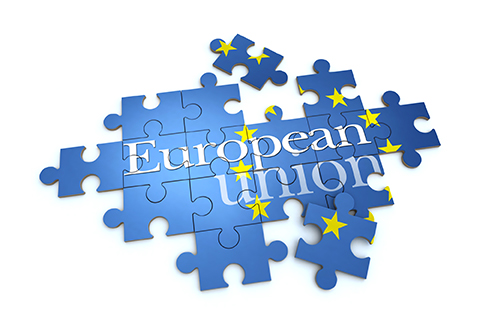EU INSTITUTIONS
This is an introductory course about the European Union Institutions. It focuses on the main EU institutions, their structure, composition and their main working mechanisms. The course is designed for students who are at the beginning of their academic path towards comprehensive knowledge about the EU. The course comprises a number of short readings, and links to video and multimedia content. It requires the student to write a number of mini-essay answers for the questions posed, as well as to fill a final, multiple choice test

Course Description
Course aims:
- To familiarize students with the EU institutional architecture
- To make students aware about the basic functioning of the EU institutions
- To introduce students with problems concerning the legitimacy of the EU institutions
Learning outcomes:
After completing this module students should be able to:
- Identify the EU Institutions
- Link the EU Institutions to relevant legitimizing practices
- Discern between the supranational and intergovernmental European institutions
- Understand the basics of how the institutions work and how they come to political decisions
- Describe the composition of the EU Institutions and their main competencies.
Course overview
Unit One. Introduction to the European Union Institutions
Unit Two. European Commission
Unit Three. European Parliament
Unit Four. European Council and the EU Council
Unit Five. Other Institutions and organizational bodies of the European Union
Curriculum
- Student code
- Student code
- Unit 1. Introduction to the European Union Institutions
- Step 1. What are the EU Institutions?
- Step 2. EU Institutions within the EU political system
- Step 3. Legitimisation of the EU institutions
- Step 4: EU institutions and the branches of power
- Unit quiz - Introduction to the European Union Institutions –
- Unit 2. European Commission
- Step 1. Overview and main competencies
- Step. 2 Electing the European Commission
- Step 3. Structure and leadership in the EC
- Step 4. The HR/VP and the EEAS
- Unit 3. European Parliament
- Step 1. Overview and main competencies
- Step 2. Organisation and structure
- Step 3. Political groups in the European Parliament
- Step 4. European elections
- Step 5. European Parliament as an advocate for democracy and human rights
- Unit 4. European Council and the EU Council
- Step 1. Identifying the Councils
- Step 2. The European Council
- Step 3. The Council
- Step 4. Voting in the Council
- Step 5. The Council Presidency
- Unit 5. Other institutions and organisational bodies of the European Union
- Step 1. European Central Bank. Structure and main competencies
- Step 2. Court of Justice of the European Union (CJEU)
- Step 3. European Economic and Social Committee and Committee of the Regions
- Final quiz:
- Now do the final quiz
- References:
About Author
Dr Marcin Zubek holds a Ph.D. in political science and is an Assistant Professor at the Institute of European Studies, Jagiellonian University. His academic interests revolve around peacebuilding processes in the post-conflict environment as well as democratic control of security policy. He gained significant academic background and experience by participating in high-profile seminars and courses at the K.U. Leuven, Maastricht University, Prague Security Studies Institute, Centre for Comparative Conflict Studies in Belgrade, LUISS School of Government in Rome. He is involved in management, teaching and research in a number of projects at the JU, such as: Regional Parliaments in Europe project, EUCHAL Jean Monnet Module, PLATO H2020 ITN, EU3D Horizon 2020 and a number of Jean Monnet Actions.
Maciej Stepka received his PhD is Security Studies from University of Warsaw. He also holds Masters degrees in Political Science (University of Amsterdam) and European Studies (Jagiellonian University in Krakow). Maciej is an assistant professor at the Institute of European Studies, Jagiellonian University in Kraków, where he teaches courses on EU Institutions and Decision-making Processes, European Integration Theories, EU Common Policies and Security Studies. Maciej’s research interest revolve around critical security and policy studies, especially securitization theory, Area of Freedom, Security and Justice, ethnography of security and security practice. His doctoral project focused on security logics applied in securitization of the “migration crisis” at the EU level. Recently he has been involved in investigating security practices and technologies in the Polish migrant detention centres.
